 Our Heavenly Father has gifted us with two wonderful blessings, being a husband or wife, and being a parent. Whether it is by the gift of a child to each other or through the loving action of adoption or circumstance it is a calling that will live with you for time and eternity. We are given the wondrous blessings of having the restored Gospel to help us enjoy and get the most pleasure of being a parent and having a loving family. Family and the Priesthood What a blessing it is to have the Priesthood in our lives. It is the responsibility of a priesthood holder to help protect, enrich, and provide for his family the same blessing that was bestowed upon him when becoming a priest. This also is shared with other families that may not have a priesthood holder in the household. By living through Gospel principles, and everlasting covenants the family benefits both spiritually and emotionally. It is said, “Pray in your families unto the Father, always in my name, that your wives and your children may be blessed.” (Book of Mormon, 3 Nephi 18:21). To this I understand the expression that “a family that prays together, stays together”. Devotion to the Lord and Our Family Our families should be cherished like pure spring water from the mountains and streams. They are our most cherished gifts from our Heavenly Father and we must ensure that there is stability of mind, body, and soul. Devoted parents are the key to salvation for your children and generations to come. Our first steps should always be steps taken on the path of righteousness. Through this our families can find joy and happiness even in the most troubled moments of our lives, love is the answer. Be the Best at Your Callings When we are given a calling it should become second nature to do our best in what is put before you. Whether it is a calling from our Church or a calling from our Heavenly Father we should always do our best to help others and ourselves. Our family responsibilities are the most important and blessed calling that is bestowed upon us. Showing love to one another will reflect upon our children the importance of showing and sharing love. Working together also instills a good foundation for our children to build their own families upon. “A new commandment I give unto you, that ye love one another; as I have loved you, that ye also love one another.” (New Testament, John 13:34). Sometimes we find it difficult to love unconditionally because of our past hurts and instances. If we remember and follow Our Savior's example of love, even in these modern times when it seems difficult, we can feel and share his love. Forever Families In one of my favorite children's hymns there is a line that says, “Families can be together forever, through Heavenly Father’s plan”. If we look at Our Father’s Plan of Salvation by understanding the Creation, the Fall, the Atonement, and living the principles of the Gospel, we can have family relationships that will last for all time and eternity. What a wonderful feeling that can only warm your heart with joy and love. We have been blessed with an opportunity to come closer to or Heavenly Father and Our Lord and Savior, Jesus Christ by reading and pondering the Holy Bible and the companion Book of Mormon to open the spiritual doors to everlasting life and happiness. I hope that you enjoyed reading this as much as I have sharing this with you. I was inspired by the writings of President Boyd K. Packer.
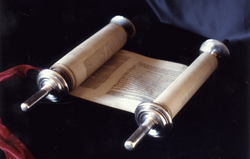 The Church of Jesus Christ of Latter-day Saints has an "open canon" of scripture. This means that the LDS Church teaches that God's revelation of divine principles to mankind did not end with the conclusion of the Holy Bible. It is a fundamental belief in Mormonism that God has not shut the door on mankind, that the fullness of the Gospel of Jesus Christ has been restored to the earth, and that God speaks to us today through the mouths of His prophets and through personal revelation in answer to prayer. Officially, there are four books which the LDS Church has declared "canon". Together, these books of scripture constitute the "Standard Works". Here they are in no particular order.
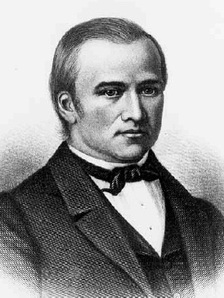 Newel K. Whitney (left) is an extremely important figure in the history of Mormonism. While somewhat obscure, many members of the Church of Jesus Christ of Latter-day Saints are familiar with story of his first encounter with Joseph Smith, in which the Prophet famously said, "Newel K. Whitney, thou art the man." But a story like this one needs a little background. Born in 1795, a full ten years before Joseph Smith Jr., the first Prophet of the Church, Newel Whitney grew up in Vermont, but as an adult would move to Kirtland, Ohio and open a general store having some success in business. In the late 1820's, Newel and his wife, Elizabeth Ann Whitney were on a spiritual journey of sorts. They were looking for a church to join, and for a while were active in the Campbellite movement, though eventually returned to their search. In late 1830, just months after the Church of Jesus Christ of Latter-day Saints had officially been founded, the Whitneys were visited by the missionaries, who brought with them a copy of the Book of Mormon. Elizabeth Whitney heard the missionaries' message first, and was deeply moved, getting baptized into the Church November of that year. Newel still wasn't convinced though, and continued to pray for an answer. In February of 1831, Joseph Smith himself journeyed to Kirtland, Ohio and showed up unannounced to Newel K. Whitney's store. Joseph marched right up to Newel and proclaimed, "Newel K. Whitney, thou art the man!" Whitney had never seen Smith in his life, and didn't know what the Prophet was talking about, or how he knew his name. Smith explained, "I am Joseph the Prophet. You prayed me here; now what do you want of me?" This was exactly the witness that Whitney needed. Soon Newel K. Whitney would join the Church, and in time became one of the greatest leaders in the history of Mormonism. When he died in 1850, he was the Presiding Bishop of the Church. He left a great legacy, and one that continues to today. His family and descendants shared his trait of hard work and faith, and continue to bless the world through their service.
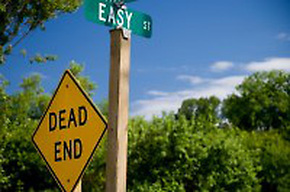 Technically, the Church of Jesus Christ of Latter-day Saints ( Mormonism) has been in my family for several generations. I grew up in a family of people who grew up in the Church. It has always been in my life. I imagine this is true of many different people in many different religions; Their faith is in their blood, a hereditary trait almost. While the above scenario describes myself and many others, it is not true of everyone in my religion. Many among our number were born into other churches or belief-systems, worshiping in other ways, and following different rules. For a myriad of reasons, these people took their own spiritual journeys, and found for themselves something the rest of us grew up with. While I am ever grateful for my upbringing in the beautiful Gospel of Jesus Christ, I have always had a certain respect for converts, those who sought for the truth, and found something wonderful that I was practically handed. They had to work for it, and they might have had to overcome obstacles and baggage along the way that I was never burdened with. I always joy in hearing their stories, who they used be, or what they had to face on the road to Christ. I look up to these people for their hard work, and their faith. It got me thinking about my own story. Though I was very thankful for the generous blessings that have been bestowed on me, I couldn't help but feel a little bit jealous of converts. These are men and women who worked for something I sometimes take for granted. The Gospel of Christ really means something to them, because they know what it's like without it. When I think about it, my logic is all backward. It's like a man who's inherited great riches that envies a once-poor man who worked hard and became rich by the sweat of his own brow. I had it all wrong though. I am still on a road to Christ, and so are those people I envied. I was mistakenly viewing conversion as a destination, a one-time event. I have come to realize, however, that conversion is not a stop along the road, but the road itself. I had thought of myself as a man who was born at the destination. I liked where I was, but felt a little robbed of the journey that others got to take. But that was not the case at all. It was more like I had been born at the trailhead, in the company of men and women who know the the road, and can give me directions when I need them. I have companions to share the adventure with, and protectors to keep me safe from the perils of the journey. Others may have had to search for the path, and as I've met them on the road, I've welcomed them into my convoy excited to learn about my new fellow traveler. We are all travelers on the road of conversion. This road leads to Jesus Christ. It is a bumpy road, and not always the easiest road, and we might occasionally try alternate routes. But this long, bumpy road is the only one that leads to true happiness. Other roads may offer a more comfortable journey in the short-term, but they lead nowhere. Why sell an eternity at a wonderful destination at the end of a winding mountain road for a fleeting detour down Easy Street, a wide, smooth freeway that offers nothing but a dead-end in a bad neighborhood? In this sense, I am a convert to Mormonism, a convert to the gospel of Jesus Christ and His teachings. I may have had certain advantages on my journey, but I, along with everyone else, must take the journey all the same. I look forward to seeing you on the road.
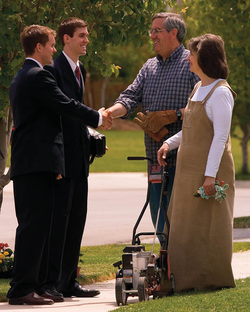 Unless you live in a nation that outlaws proselytism, you probably have at one point in your life, had some sort of contact with one of the Mormon missionaries. Maybe you've seen them handing out copies of the Book of Mormon on the street. Perhaps you've seen them on their bikes, on the way to some appointment. Maybe they've even knocked on your door. Though they may know of them, people might not always know a whole lot about these these missionaries who spread Mormonism throughout the world.
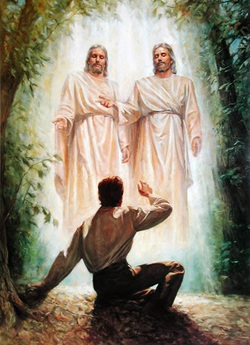 The name Joseph Smith inspires an entire possible spectrum of emotions from those who have heard it before. While many revere and love the things he accomplished, there are others who view him as either a deceived fool or an ingenious deceiver of others. It is safe to say that he is one of the most controversial figures of the nineteenth century. But all of this considered, I'd say Joseph Smith and his legacy have had a profound impact on my life. As a boy I was taught the stories of his life: his encounter with God and Jesus Christ at age fourteen, the visitation of an angel named Moroni, who led him to a set of golden plates inscribed with the record of ancient Jews in America. As a kid, I never doubted this. Why should I? It was what I was taught from an early age, alongside the stories of the Bible. These cherished beliefs were taken for granted. It was just part of me, as much the part of me that knew the sky was blue. But as anyone who has ever grown up knows, age brings with it some degree of cynicism. The sunny world of our childhood, if we let it, can become the oppressive regime of our teen years. Of course, I never felt "oppressed" by my religion. But, as everyone does, I began to analyze the world around me with more scrutiny. In my formative late teens, I was confronted with all manners of challenges to my faith, which ironically seem to shape my faith today. As I became a man, I felt the need to discover myself, to (much like Joseph Smith had) really figure out what I believed. This involved much study, much prayer, and faith that my Lord would answer these prayers. I think the problem most people run into with this is that they expect their answer to be all at once, a sweeping glorious experience of faith-affirming revelation. This can happen, but is frequently untrue. My testimony-building experience has been, and still is, gradual. Isaiah's timeless words ring true in my life: "But the word of the Lord was unto them precept upon precept, precept upon precept; line upon line, line upon line; here a little, and there a little..." (Isaiah 28:13) The abundance of material out there that purports to "disprove" Joseph Smith and his claims does not bother me, because my study and prayer has led my to a different conclusion: that Joseph Smith did not, and could not churn out a pseudo-religious novel as complex as the Book of Mormon. My study and prayer has confirmed in my mind that, though imperfect, this man was a prophet ordained of God, who truly saw what he said he saw, and instructed by God to restore the fullness of the gospel of Jesus Christ to the earth once more. Joseph Smith, his legacy of faith, and his love for Jesus Christ have compelled me, changed me even. I am ever grateful that in 1820, he knelt in a grove of trees, and asked his Father for clarity, and eternally grateful that his prayer was answered when he witnessed God the Father and Jesus Christ. I love this gospel with all my heart, and am grateful for it every day.I'll close in the name of Jesus Christ-- Amen.
Since I was a little boy, I have read, and reread the Book of Mormon. When I was little, I had no idea that not everyone held this book in the same esteem as the Bible. They had always gone together for me. So much so that I remember watching a show on TV as a five-year-old, when one character mentioned the Bible. I remember thinking to myself,"...And the Book of Mormon." Even though I was taught to include everyone, and regularly had play-dates with non-Mormon friends, it wasn't until I was a little older that I realized not everyone on earth was a Mormon, or even Christian (and a little older to realize that not all Christians were Mormons). I was taught from an early age by my parents, that everyone, no matter the circumstances, deserved love, that we were all brothers and sisters. Though, being human, I could not do this every time. I have, however, always tried to some degree. As the years went on, and my innocence began to fade somewhat, I slowly came to grips with the fact that the world was not as sunny and bright as I thought it was. I also realized that not everybody thought that the Church of Jesus Christ of Latter-day Saints (Mormonism) was as wonderful as I did. I was shocked to learn that some even hated it. As I processed this information, I contented myself with the knowledge that everyone has their own viewpoint, and they had the right to choose that view. One of my best friends in grade school was not a member of the Church, and had had some bad experiences with it. After a couple years of friendship, he told me about how the missionaries had visited his family and one of his sisters was considering baptism, but was turned off by the pushiness of the missionaries, who kept asking her to set a date. That experience, seemed to shape his opinion of the Book of Mormon, and the LDS Church as a whole. We stayed friends for many years and I we didn't really broach the subject much. When we did talk religion, we both did our best to be respectful, but I could tell he was a bit cynical of the whole thing, which I didn't mind too much. I mostly labeled the subject as a "sore spot", something we ought not get into. We eventually drifted slowly apart, our lives taking different detours and both of us finding different groups of friends. We hung out on and off, but it eventually tapered off. We still occasionally say hello every now and again, and reminisce about the "good old days", but those encounters are far and few between. Throughout middle school and high school, I kept the Book of Mormon on my nightstand, reading a verse or two before going to sleep. In those days, I knew on some level that it was a special book, but the words seemed so stale. My teenage brain just couldn't concentrate on the "thees" and "thous" for longer than about a minute before putting it down. The thing was, I was a great reader from an early age, but I didn't have the patience for long, archaically written books. I couldn't relate. At the time I was only reading to form a habit of study. Sadly, it wasn't until recently that I truly started to study the Book of Mormon. A few months ago, as I became a Missionary, I realized, that if I wanted to truly understand this book, I would have to read it more actively, not just skim a couple token verses and drift off to sleep. My study has become more in depth, I pray before each reading session, and sit at a desk, taking notes. Since I've incorporated this beautiful book (in conjunction with the Bible) I have noticed a difference in my life. I feel a deep love for my fellow man. I have more of a desire to share this beautiful Gospel with others. I wish I had discovered the Book of Mormon's real power sooner. I have always had a fondness for it on some level, even if I found it boring, but for the first time, I really understand the sweetness of its words and have more of an inclination to act upon its teachings. I hope in the future I can be more willing to share it with those who want it, those who need it. I hope that, if you haven't, you can also experience what this book has to offer. I offer you these humble words in the name of our Savior Jesus Christ--Amen
2nd Nephi 29:2-3, 8"The words of your seed should proceed forth out of my mouth unto your seed; and my words shall hiss forth unto the ends of the earth, for a standard unto my people, which are of the house of Israel;
And because my words shall hiss forth—many of the Gentiles shall say: A Bible! A Bible! We have got a Bible, and there cannot be any more Bible.Wherefore murmur ye, because that ye shall receive more of my word? Know ye not that the testimony of two nations is a witness unto you that I am God, that I remember one nation like unto another? Wherefore, I speak the same words unto one nation like unto another. And when the two nations shall run together the testimony of the two nations shall run together also. "The Book of Mormon is one of the most controversial pieces of text in religious history. Loved and cherished by Latter-day Saints and condemned by much of the religious and secular world, the concept of the Book of Mormon leaves some befuddled. They consider the addition of another sacred text a defilement of the Holy Bible, and they back up this claim by citing Revelation 22:18: "For I testify unto every man that heareth the wordsof the prophecy of this book, If any man shall add unto these things, God shall add unto him the plagues that are written in this book." This quote from St. John is a charge to the world not to corrupt the word of God, and is enough to dissuade any God-fearing man from doing so. But this scripture does not, as it might seem, condemn the Book of Mormon, when one considers this gem from John 10: 15-16: "As the Father knoweth Me, even so know I the Father: and I lay down my life for the sheep. And other sheep I have, which are not of this fold: them also I must bring, and they shall hear my voice; and there shall be one fold, and one shepherd." Or this, from 2nd Corinthians 13:1:"This is the third time I am coming to you. In the mouth of two or three witnesses shall every word be established." Two or three witnesses. The Book of Mormon is that second witness of Christ. Indeed, The savior Jesus Christ did visit his other sheep in the Americas. The Book of Mormon and the Bible are not in contradiction. They, in fact, support one another and echo many of the same sentiments. I have a testimony of the Book of Mormon. I believe it to be the word of God, and testify of its truthfulness. I believe that God intended for us to have this second witness, that we might have a greater understanding of the workings of Heaven and the love of our dear Savior and elder brother Jesus Christ. I know this book has the power to soften hearts and change lives. It has for me, and many others. I conclude in the name of Jesus Christ-- Amen.
We all make sacrifices. Every one of us has at one time or another given up something for a greater purpose. We all know how this feels. But one thing that none can begin to comprehend is the magnitude of the sacrifice our Lord and Savior Jesus Christ made on our behalf. A mortal being cannot feel the same degree of love, or experience the same level of devotion that our elder brother had for us. But through the guiding influence of the Holy Ghost, one can come to appreciate and relish the gift that our Lord has given us in the atonement, and we can learn to accept this gift in our lives and apply it where we are in need. The atonement of our Savior was an all-encompassing sacrifice. Prior to the time of Jesus, believers followed what is known as the Law of Moses, the code of righteousness given by God in that era. With the coming of Jesus Christ, however, the Law of Moses was replaced with a higher law. The night before his crucifixion, Jesus and his twelve apostles convened in the top floor a house, and had what we refer to as the Last Supper. Jesus broke and blessed bread for the apostles and explained that it was a representation of his body. He blessed and passed around wine, explaining that it was a representation of the blood he would shed for them. These actions would in time become known as the Sacrament. After the Last Supper, Jesus and his disciples walked into the garden of Gethsemane. The Savior told his disciples to stay back and kneel, to pray that they enter not into temptation. He continued to walk several yards further, until he was alone. It was then that Jesus Christ prayed to his eternal father, and begged, s aying, "Father, if thou be willing, remove this cup from me: nevertheless not my will, but thine, be done."Our Redeemer suffered there in the Garden of Gethsemane. He felt every pain, experienced every ailment, and endured all sorrow that man had ever, and will ever feel, all at once. He writhed in pain, and in his agony, he bled from every pore of his body.He was then betrayed by his apostle, Judas, who sold him to the angry Pharisees, who beat him, mocked him, unjustly tried him, and crucified him, one of the most painful forms of murder that man has ever devised. He gave up the ghost, and ascended unto his father, returning three days later as a perfect, resurrected being.This pain was not needless. Our Lord Jesus Christ suffered these agonies to understand us, to descend below the deepest depth that man could sink to, to empathize with all pain and sorrow that man could feel. His agony atoned for our pains and ailments, but more importantly, it atoned for our sins. Thanks to the Lord's sacrifice, we can activate the atonement when we sin, we can repent, and turn away from our sins by partaking of the sacrament and washing away our sins with the help of our Savior and Redeemer.We must always remember the love and devotion that Jesus Christ feels for us. He, as our elder brother, wants nothing less than for us to succeed. The life he freely gave and the crushing burden he freely bore are indeed a testament to his loving care, and he loves us all unconditionally. I leave you with my testimony, that our Savior Jesus Christ is the literal son of God, that he atoned for our sins so that we could come closer to our father. I testify of our Savior's love, of my love for him, and of the perfect example of righteousness he is in my life. I close this article in his holy name, Jesus Christ--Amen
|






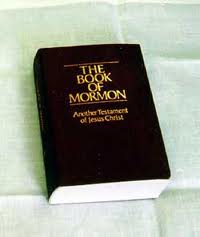
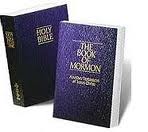
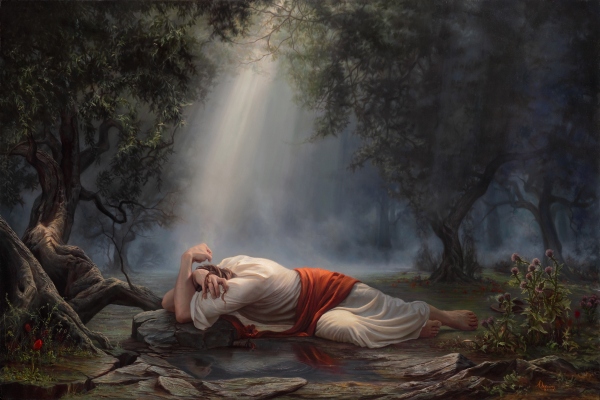
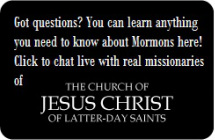
 RSS Feed
RSS Feed